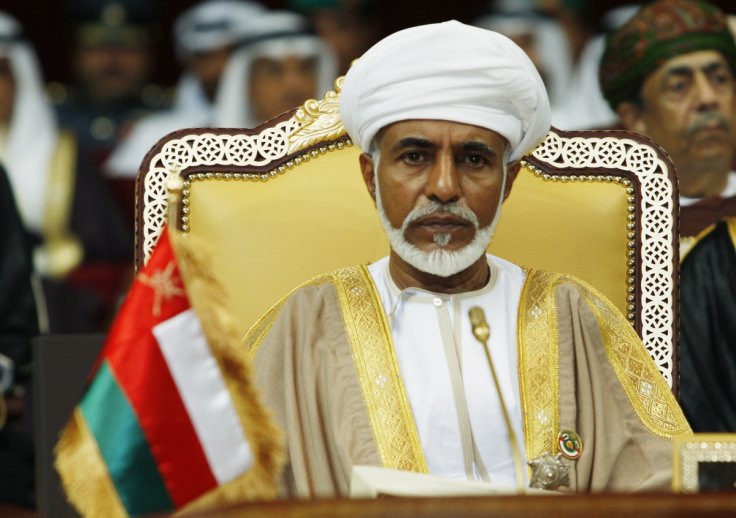Sultan Qaboos, who modernised Oman and brought peace to the restive southern region, is travelling yet again to Europe for undergoing treatment. Qaboos, one of the most loved Gulf monarchs, is travelling to Belgium this time, but details on his treatment and ailment are unknown as always.
Sultan Qaboos, Arab world's true benevolent monarch, dies
The Sultan, who came to power nearly 50 years ago, has had indifferent health at least since the beginning of the current decade. In 2015, he underwent prolonged treatment in Germany. When footage showed of him walking unaided on the red carpet upon his arrival in Muscat after months of treatment, the Omanis had hit the streets to celebrate.
The crisis staring at the peaceful Arabian peninsula nation is that Qaboos has no children or siblings. The 79-year-old has sat on the Omani throne since 1970 when the leadership changed in a bloodless coup. The British-backed coup had aimed at removing his father Said bin Taimur, who had become unpopular after his heavy-handed reprisal of the Dhofar revolution.

How Qaboos brought peace to restive Dhofar region
Qaboos mended bridges, negotiated with the southern revolutionaries and rolled out unprecedented economic reforms with the help of oil wealth. Oman, which is not an Opec member, produces just about one million barrels per day of oil but the benevolent monarch saw to it that the Marxist revolution in Dhofar was addressed through measures to root out poverty and establish a more egalitarian society.
The health of Qaboos, who has not publicly announced any specific succession plan, has been a major talking point in Gulf strategic circles. The vacuum created in Oman in his absence will be hard to fill. The southern region of Dhofar has been stable during Qaboos' reign but the people there aren't sure how they will be treated under a new leader.
Will unrest return after Qaboos?
"Qaboos is an intelligent man. Yet, I don't know the name of his successor and if he is as cruel as Qaboos's father, we will consider making another revolution. Many still have a Kalashnikov," an unnamed young man from the family of a renowned fighter from the Dhofar revolution era told Asia Times earlier this year.
Providing enough jobs for young Omanis will be difficult, especially with Oman's economy remaining hydrocarbon-dependent
Irrespective of whether the unrest in the South returns, Oman has tough challenge on hand on the economic front. The neutral Gulf kingdom that maintains cordial relations with like Saudi Arabia, Iran and Qatar, is perhaps the weakest link in the Gulf in terms of economic prowess and hydrocarbon reserves. Muscat realises that its economic future is dependent on pivoting away from hydrocarbons and in turning to sectors such as tourism for job creation.
"Providing enough jobs for young Omanis will be difficult, especially with Oman's economy remaining hydrocarbon-dependent..." Giorgio Cafiero, CEO of Gulf State Analytics told the publication. If Oman fails in this objective, grievances from decades ago could come back into play, he warned.
What is the Sultan's succession plan?
The succession to the Omani throne has been an open question for more than a decade. Qaboos, who is 79 now, amended the process of choosing his successor in 2011. Under this plan, the Sultan named a council to oversee the enforcement of the country's Basic Law when the role of the Sultan falls vacant.
As per the Basic Law the royal household must select a new ruler within three days of the death of the monarch. Qaboos has several cousins and other close relatives but no direct heir. In case no Sultan is selected within the time frame, the defense council and the heads of the judiciary and the consultative councils would turn to the choice of Qaboos, which he has recorded and kept sealed in an envelope.
There is deep mystery surrounding who the Sultan haas nominated as his successor and that is reason enough to kick up succession rumours every time the ageing monarch travels abroad for treatment.









